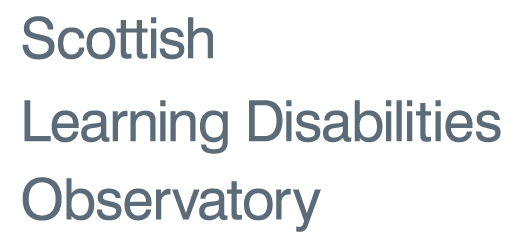Scotland: Other topics
Scotland's population size is 5,295,403
-
Choose
- Learning disabilities
- Autism
People with learning disabilities, and people with autism, are not homogeneous groups, and they intersect with all other identity groups across Scotland.
Scotland is an increasingly diverse nation. For example, whilst Scotland is overwhelmingly white, the number of minority ethnic communities has nearly doubled between 2001 and 2011. There has been very little focus on the ways in which people with learning disabilities and people with autism have multiple intersecting identities in relation to ethnicity, sexuality, gender, class, religion, and other identities.
In order to fully understand what it is like to be a person with learning disabilities and/or autism in Scotland, we need to explore the ways in which they intersect with other identities. For more information about equality and rights policies go to our policy pages.
Country of Birth
| All People | People with learning disabilities | |||
|---|---|---|---|---|
| Total | % | Total | % | |
| United Kingdom | 4,926,119 | 93.0% | 25,599 | 97.2% |
| Other European Countries | 172,243 | 3.3% | 298 | 1.1% |
| Africa | 46,742 | 0.9% | 120 | 0.5% |
| Middle East and Asia | 104,530 | 2.0% | 205 | 0.8% |
| The Americas and the Caribbean | 33,353 | 0.6% | 93 | 0.4% |
| Other | 12,416 | 0.2% | 34 | 0.1% |
| Total | 5,295,403 | 100.0% | 26,349 | 100.0% |
Country of birth
Country of birth by gender
Ethnicity
| All People | People with learning disabilities | |||
|---|---|---|---|---|
| Total | % | Total | % | |
| White: Scottish | 4,382,131 | 82.8% | 20,875 | 79.2% |
| White: other | 613,534 | 11.6% | 1,509 | 5.7% |
| Asian | 133,506 | 2.5% | 78 | 0.3% |
| Mixed or multiple ethnic groups | 19,068 | 0.4% | 446 | 1.7% |
| African | 28,170 | 0.5% | 45 | 0.2% |
| Caribbean or Black | 6,279 | 0.1% | 29 | 0.1% |
| Other ethnic groups | 13,698 | 0.3% | 34 | 0.1% |
| Not reported | 99,017 | 1.9% | 3,333 | 12.6% |
| Total | 5,295,403 | 100.0% | 26,349 | 100.0% |
Ethnicity
Language spoken at home
| All People | People with learning disabilities | |||
|---|---|---|---|---|
| Total | % | Total | % | |
| English only | 4,740,547 | 92.6% | 23,361 | 90.3% |
| Gaelic | 24,974 | 0.5% | 66 | 0.3% |
| Scots | 55,817 | 1.1% | 255 | 1.0% |
| British Sign Language | 12,533 | 0.2% | 682 | 2.6% |
| Polish | 54,186 | 1.1% | 69 | 0.3% |
| Other | 230,166 | 4.5% | 1,439 | 5.6% |
| Total | 5,118,223 | 100.0% | 25,872 | 100.0% |
Language used at home
Gaelic language skills
| All People | People with Learning Disabilities | |||
|---|---|---|---|---|
| Total | % | Total | % | |
| No skills in Gaelic | 5,005,640 | 98.3% | 25,527 | 98.7% |
| Understands, speaks, reads or writes in Gaelic | 86,711 | 1.7% | 345 | 1.3% |
| Total | 5,092,351 | 100.0% | 25,872 | 100.0% |
Religion
| All People | People with learning disabilities | |||
|---|---|---|---|---|
| Total | % | Total | % | |
| Church of Scotland | 1,717,871 | 32.4% | 8,226 | 31.2% |
| Roman Catholic | 841,053 | 15.9% | 4,238 | 16.1% |
| Other Christian | 291,275 | 5.5% | 1,237 | 4.7% |
| Buddhist | 12,795 | 0.2% | 32 | 0.1% |
| Hindu | 16,379 | 0.3% | 13 | 0.1% |
| Jewish | 5,887 | 0.1% | 41 | 0.2% |
| Muslim | 76,737 | 1.5% | 355 | 1.4% |
| Sikh | 9,055 | 0.2% | 31 | 0.1% |
| Other religion | 15,196 | 0.3% | 45 | 0.2% |
| No religion | 1,941,116 | 36.7% | 9,298 | 35.3% |
| Religion not stated | 368,039 | 7.0% | 2,833 | 10.8% |
| Total | 5,295,403 | 100.0% | 26,349 | 100.0% |
Religion
Religion by age group and gender
Summary information
97.2% of people with learning disabilities were born in the UK, compared with 93.0% of all people
-
1.1% of people with learning disabilities were born in other European countries, compared with 3.3% of all people
-
79.2% of people with learning disabilities are white and Scottish, compared with 82.8% of all people
-
90.3% of people with learning disabilities speak English at home, compared with 92.6% of all people
-
35.3% of people with learning disabilities have no religion, compared with 36.7% of all people
View other information
Explore
Choose People with learning disabilities data or People with Autism data
You may also choose topic or area
